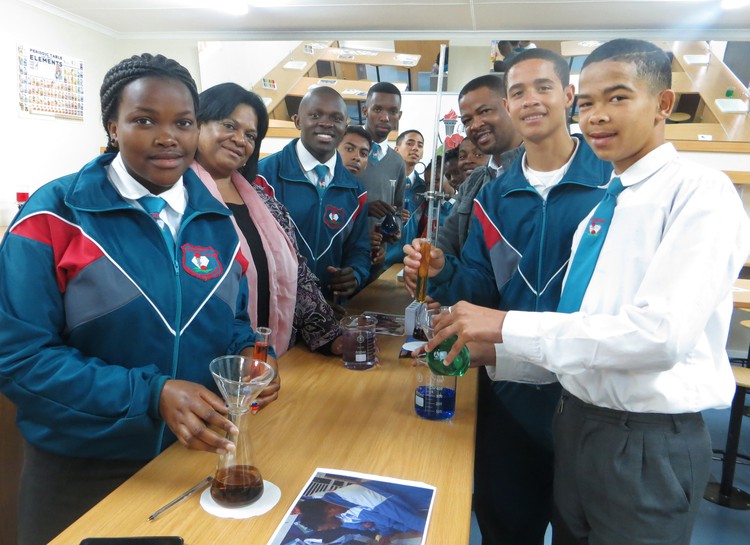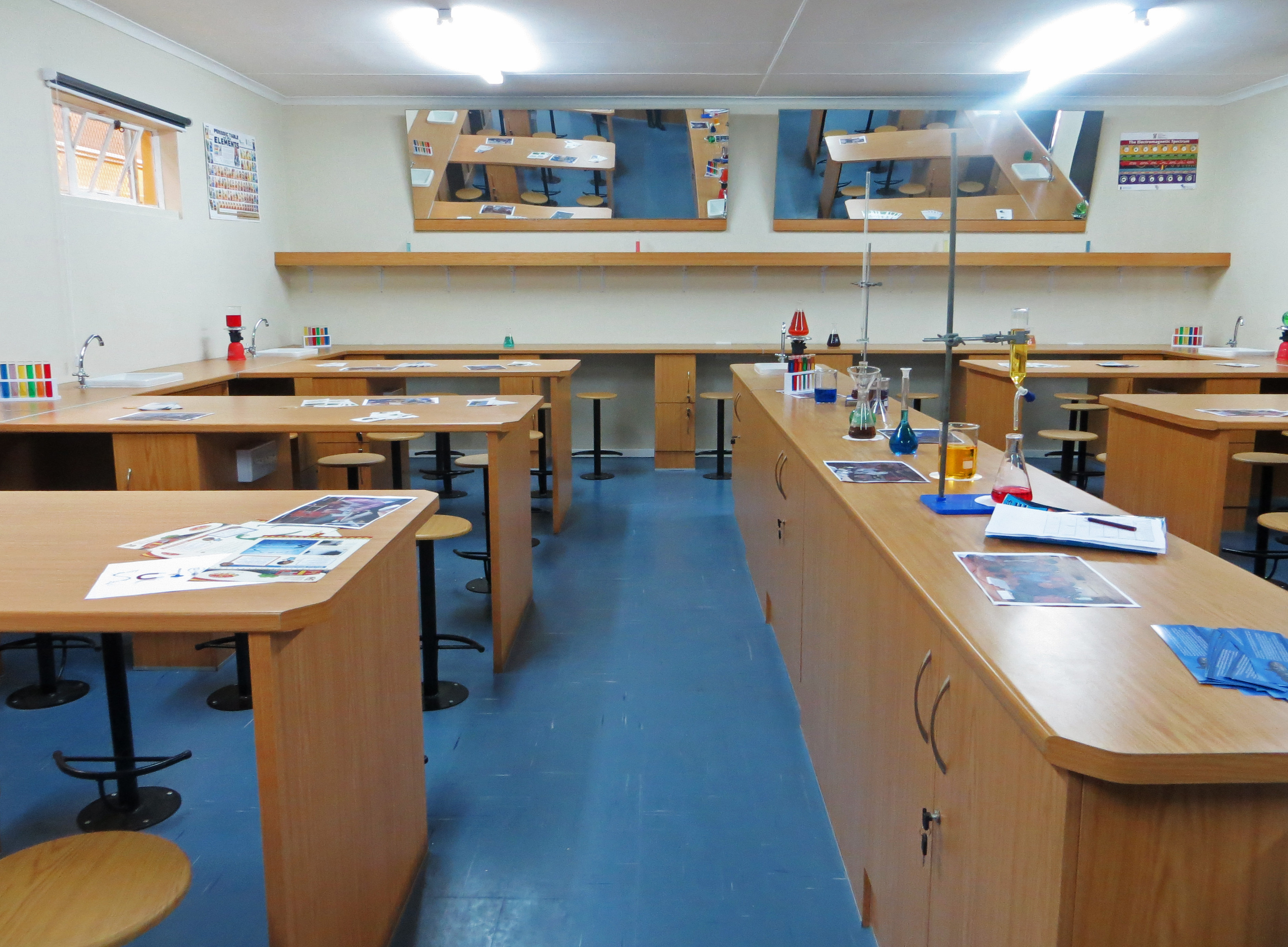
Learners at Roosendaal High School in Delft with school principal Chrizelda Layman welcomed the installation of a new centre at their school. Photo: Suné Payne
21 October 2017
Roosendaal High School in Delft will benefit from a brand new Science Learning Centre that opened this week at the school.
School principal Chrizelda Layman said the R1 million centre is the perfect gift for the school which celebrates 21 years this year. “We are prepared and open to share the resource,” pledged Layman.
Roosendaal is a no-fee school with 1,200 learners and is one of three high schools in the Delft area that follows a pure science stream. Mathematics, Natural Sciences, Life Sciences and Physical Sciences are among the subjects the school offers.
In 2016, the school’s Mathematics and Physical Sciences National Senior Certificate (grade 12 final examination) results were the most improved in the Metro North District of the Western Cape Education Department.
“This [centre] is really an achievement for our learners,” said Layman.
The school is in an area with hard socio-economic conditions and limited opportunities. The school has a feeding scheme which provides several meals daily to help learners.
Grade 11 learner Joseph van Syfer said it was the first time he saw a lab he could use. He plans to study to become a science teacher. Yaseen Martin, also in grade 11, said he plans to become a mathematician.

Learners at Roosendaal High will now be able to complete their Physical Science practicals at school with the new science centre. Photo: Suné Payne
The lab is a partnership between the school, the Science Learning Centre for Africa of the University of the Western Cape (UWC), the Western Cape Education Department, and the Garden Cities Archway Foundation. The school is one of 57 within the Western Cape to have had a Science Learning Centre built since 2011.
Virgil Fritz, the head of the science department at the school, said, “For the first time, the learners will see colour changes.” He was referring to chemical experiments, part of the Physical Science curriculum.
New equipment such as test tubes, desks, electrical power points, a new projector and computer were placed in the centre. The room was repainted and mirrors were placed in the back of the class.
Fritz said previously matriculants had to do their Physical Sciences practicals at either UWC and Stellenbosch University. According to Fritz, this was impractical and logistically expensive for the learners.
“We are so motivated to make this project a success,” said Fritz.